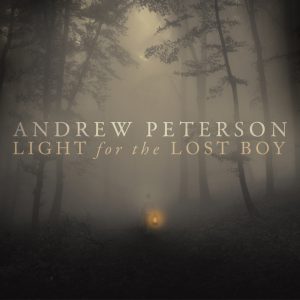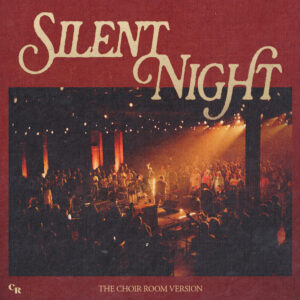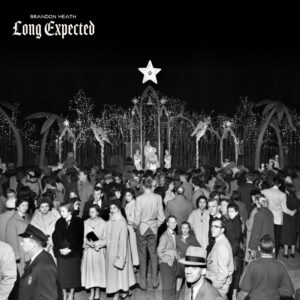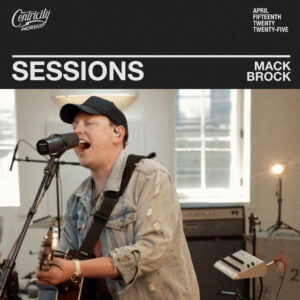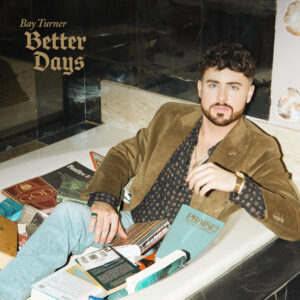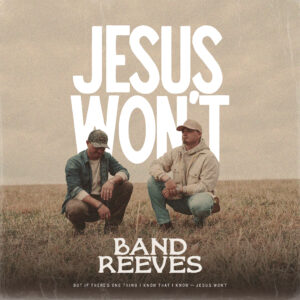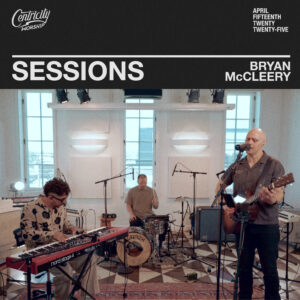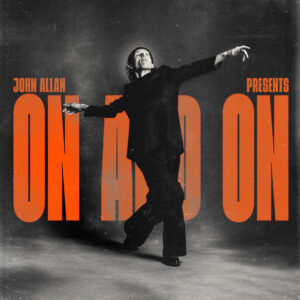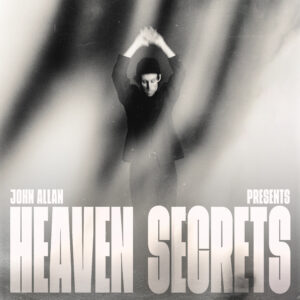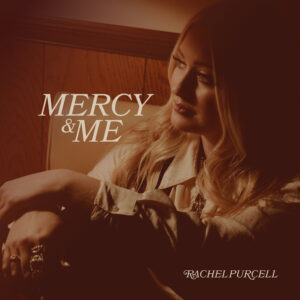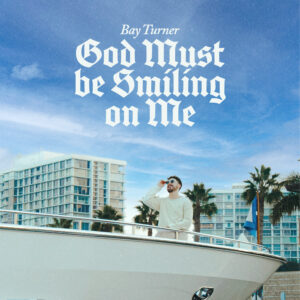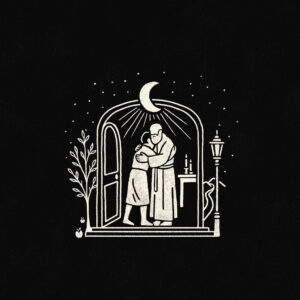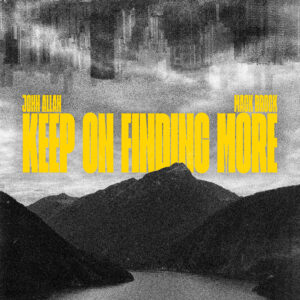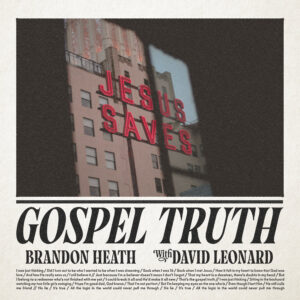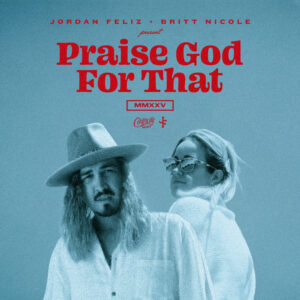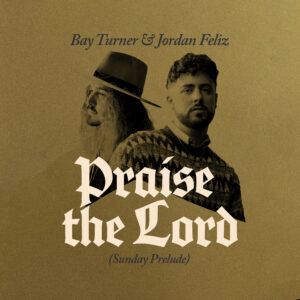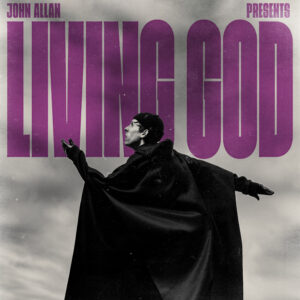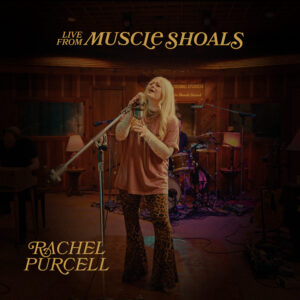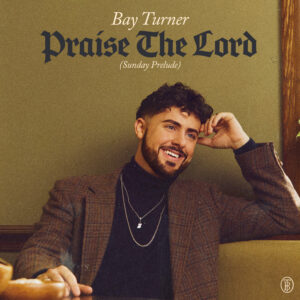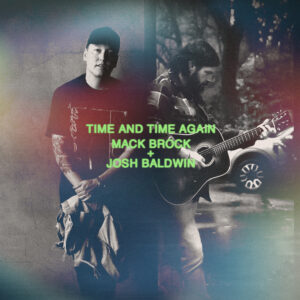About Andrew Peterson
On paper Resurrection Letters, Vol. I is a project that shouldn’t exist. The math doesn’t add up. After ten years of putting it off, ten years of feeling too intimidated and inadequate to write and record the project he instinctively knew could be the most important and personally meaningful of his career, Andrew Peterson wrestled a growing sense he could put it off no longer. After all, we’re only given so many years in this life.
“This is our hope, and I’m still surprised by it.
Peterson’s twenty years of creative output as a songwriter and novelist had already served to articulate and shape the longings of hundreds of thousands of fans, turning and training their desires towards eternal things. His poetic and theologically rich expressions have been always honest, sometimes painful, ever restless, ever hopeful, ever human. He is the rare artist who clearly sees his talent, not as a reason for pride and self-promotion, but as a thing he is given primarily to steward in the service of others. And it was because of that posture of humility—and despite all his recent successes as a recording artist, novelist, filmmaker, and non-profit organizer—that the unfinished Resurrection Letters project was always present somewhere in the back of his mind unsettling him like a splinter under skin.
“Listeners asked me again and again about when I would record Resurrection Letters, Volume One,” Andrew remembers, “and I would wince every time.”
To put all of this another way, there are many artists who are gifted, and then there are a small handful of artists who are gifts. And Andrew Peterson is a gift to the Body of Christ. He has not pursued a career by asking what would sell well and seeking to cash in on that. Instead he has pursued a calling by asking what would serve well and then laboring to bring those expressions of beauty and comfort and longing into being. When he creates, he creates with a measure of fear and trembling, because he begins in the knowledge of his own limitations, never presuming he will be able to bring his work to any meaningful completion. So it makes sense that the project he saw as most necessary would also be the project he would feel most unprepared, even unworthy, to pursue.
“Honestly, as the centrality of the resurrection became clearer and clearer to me from a theological standpoint,” he says, “the less I felt up to the task.”
A decade ago Peterson had been so stirred by implications of the resurrection expressed in N.T. Wright’s Surprised By Hope and C.S. Lewis’ The Great Divorce that he penned an album’s worth of songs unpacking those epiphanies. For the intervening decade since the release of Resurrection Letters, Vol. II though, he’s found himself mumbling ambiguous and reluctant answers to that obvious, repeated question: “When are you going to go back and record Volume I?”
“The songs I wrote for Volume II traced the ripple effects of the resurrection,” Andrew explains. “They explored how it impacted my own life and hopes rather than being specifically about Jesus. I called it Volume II because I knew there was a more fundamental part of that story still to tell. The whole church, the whole history of our faith, hinges on Christ’s resurrection. But I didn’t feel adequate to the task of communicating that, so for ten years I’ve carried that insecurity along with the sense that I needed to bring it to completion at some point.”
Eventually, that time came. In the fall of 2017 Andrew met with his label Centricity Music and together they agreed on a deadline three short months away so the project could release in time for Easter of 2018. Now Resurrection Letters, Vol. I was on the calendar. The gears were turning and time and money from the label were being invested in anticipation of the pending release, so one way or another Andrew was going to have to deliver something. Problem was, those three months spanned a quarter year which was shaping up to be the most unlikely recording season of Andrew Peterson’s career.
“I came into the process with only two songs written,” Andrew explains, “and during those three months I had two trips to England scheduled, a trip to Israel, a deadline to complete the Wingfeather Saga animated film, and a deadline to finish writing a nonfiction book. I was also staging the Rich Mullins tribute concert, staging the Rabbit Room Live show, hosting the annual Hutchmoot Conference, and coordinating and touring the Behold the Lamb of God Christmas concert. It really didn’t make sense that we could record Resurrection Letters, Vol. I during those same three months, but somehow, on odd days when I was home in Nashville, it happened.”
Happened is perhaps a slight understatement. Three months later Peterson had managed to record fourteen new songs. At that point a decision was made to split the project into a five-song EP and a nine-song album, partly because of the number of songs, and partly because of the subject matter. Most of the songs were about Christ’s resurrection, but a handful centered instead on his crucifixion.
“My dream was always that Resurrection Letters, Vol. I would be a record you would listen to on Easter Sunday,” Andrew says, “so I wanted it to feel like a celebration. Early on I imagined a three-part structure following the line from the Anglican liturgy ‘Christ has died, Christ is risen, Christ will come again.’ But once everything was recorded it just didn’t feel right to open the project with “Last Words (Tenebrae)” (a song based on Christ’s final utterances on the cross) and then to spend five songs contemplating his death. So we split it. The Prologue EP honors the necessary darkness of the cross and becomes a musical meditation for Passion Week and Good Friday, allowing Resurrection Letters, Vol. I to be the pure Easter celebration we envisioned.”
Much of the credit for the prolific song output during those three months, Peterson says, goes to producer Ben Shive (Ellie Holcomb, Colony House, Mercy Me). Shive stepped up to shepherd the project through Andrew’s frequent absences. Having produced Resurrection Letters, Vol. II a decade earlier and toured for years with Andrew, Ben was the obvious choice. “He understood more than anyone else what we were trying to do,” Andrew says. “Plus, Ben Shive knows scripture better than any friend I have, which is essential for a project like this. He even wrote two of the songs and co-wrote another three.”
Shive had also split production credits on Peterson’s last two studio projects, Light for the Lost Boy and The Burning Edge of Dawn. Those albums were autobiographical, dealing in large part with Andrew’s “long, dark journey” through a three-year depression.
““One of the reasons I love doing the Behold the Lamb of God tour every year,” Andrew says, “is that it feels really good to spend a month of the year not singing about me and my story, but instead singing words from scripture about the Lamb of God.
“One of the reasons I love doing the Behold the Lamb of God tour every year,” Andrew says, “is that it feels really good to spend a month of the year not singing about me and my story, but instead singing words from scripture about the Lamb of God. After four years spent writing and singing songs about my own struggles, to spend this season writing and singing about the death and resurrection of Jesus felt like a culmination of that hard journey. When I die, I’m not interested in people saying that I told my own story well, except in how the telling of my own journey might have drawn them to a deeper understanding of the gospel. Resurrection Letters, Vol. I is a distillation of that hope.”
Such hope is articulated most clearly in the first single “Is He Worthy?” Drawn from the fifth chapter of Revelation, the song is structured as a sort of liturgy set to music, utilizing a call and response format that invites listeners to become participants. It isn’t difficult to imagine that “Is He Worthy?” might be printed in hymnals 200 years from now. The poetic, catechismal lyric begins in a recognition of the world’s brokenness and builds to a hope-filled and worshipful proclamation of Christ’s worthiness.
“When I sing those words from scripture, I can hardly believe they’re true,” Andrew says. “‘From every people and tribe, every nation and tongue, he has made us a kingdom and priests to God who reign with the Son.’ We’re told that we will actually reign with Christ. That is a mind-blowing promise. How can we even wrap our thoughts around it?”
The album’s upbeat, anthemic opener, “His Heart Beats,” likewise deals with an incomprehensible reality: that the resurrection of Jesus wasn’t only a spiritual event, but involved a dead physical body being restored to life; that a heart which had been silent for three days suddenly contracted and began to beat again; that the blood which had stilled and pooled in Christ’s veins suddenly began to flow again. “His Heart Beats” is a joyful meditation and triumphant declaration likely to be incorporated into many Easter sunrise services.
A third song that could similarly serve the church for generations is the psalm-like “Always Good,” written when a friend suddenly and unexpectedly lost his wife. Perhaps more than any other song on the record, “Always Good” is a hard-won confession of faith that lives in that expectant tension between the hurts of this life and the hopes of what is to come.
“I never cried so much making a record,” Andrew reflects. “What it really means to ponder and pray and write about the significance of the centrality of the resurrection is that the whole album is about Jesus. It’s about the person of Christ. Through that creative process I found myself loving him more. If Behold the Lamb of God is about dusting cobwebs off the Christmas story to remind people it’s about the incarnation and the atonement for sin, then Resurrection Letters, Vol. I is the next chapter in the story, a celebration of what Christ saved us for. My hope is that these songs kindle a new longing not only in hearts, but down to our very bones and sinews—a tangible longing that we were made for this, for this coming redemption, for God dwelling with his people in a more profound way than he did even in the garden.”
# # #
For additional information, music, interviews, etc., contact: Rick Hoganson, Hoganson Media Relations, 615-459-9870, [email protected].

